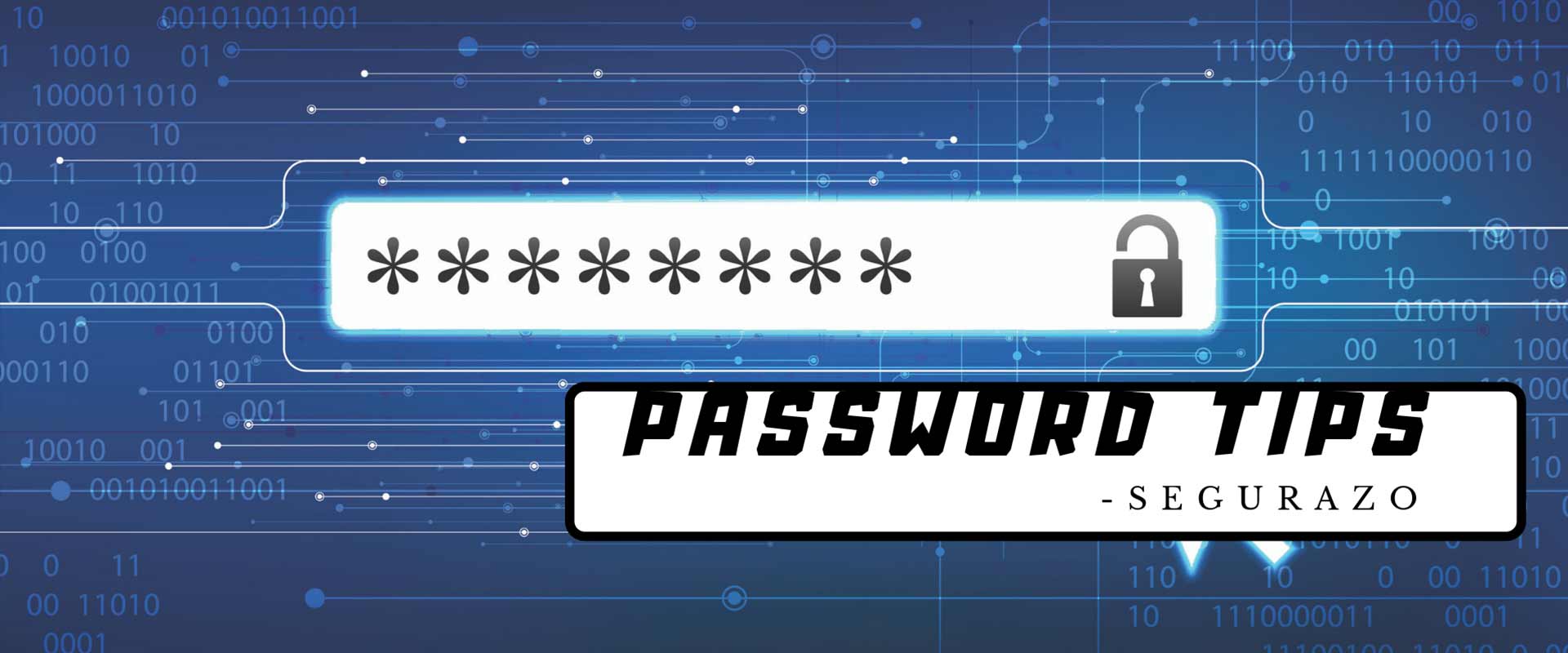Password Security Tips
By Segurazo Team3 June 2019
With the rise of internet banking and an increased amount of sensitive data housed in online user accounts, password security is becoming a growing and universal problem. As cybercriminals develop more innovative ways to crack passwords, more businesses and individuals are put at risk. Now more than ever, it’s important to stay educated and mindful about password security measures in order to keep your business or personal accounts protected.
As a leading global IT security company, Segurazo is an expert in the field of cybersecurity. Using their extensive knowledge base of next-generation technologies and comprehensive protection methods, the professionals at Segurazo have compiled these hack-proof password tips:
Password Length Matters
If your password is shorter than or equal to 8 characters than it is likely susceptible to being quite easily hacked using a simple brute-force technique. Brute-force hacking approaches are one of the most widespread and simple methods. Put simply, they consist of a computer program which uses a combination of letters and numbers to sequentially generate passwords until one is successful. In most cases, if your password is 8 characters or less and contains standard dictionary words, it can eventually be hacked by such a software.
According to Segurazo, the simply lesson here is that length and complexity matter. Longer passwords create an exponentially increased number of potential sequences, which complicates the hacking process for brute-force techniques. In most cases, passwords of at least twelve characters or more should be standard for protecting your accounts.
Never Recycle Passwords
Those who consistently use a single password (or multiple variations of a similar password) across several accounts are more at risk for being hacked and exploited. Recycling or repeating passwords presents the danger of turning the leak of one account login and password into a complete breach of personal data.
For this reason, Segurazo and all other leading IT security experts suggest never recycling or reusing passwords. This includes the use of password variations. That way, if a password is leaked out into the internet or acquired by a cybercriminal, the risks and damages are isolated to a single account, rather than the breadth of your online accounts and personal information.
Variation is Key
Many online registrations require capitals, symbols, and numbers be included in a passcode. Even if these are not required, they should be included. Passcodes that include numbers, symbols, and a scattering of capitalized characters are significantly more complex than those which do not. These character combinations should also be relatively random and nonsensical in nature—this means refraining from using memorable dates such as birthdays, the names of children, home addresses, or other personal information which could otherwise be acquired by a third party. Lastly, it’s best to select a variation of letter combinations which do not appear in the dictionary, as standard dictionary words make passwords more susceptible to hacking techniques.
Use a Password Manager
The average person has 27 unique web logins to access everything from their bank account to their Twitter handles. At first instinct, users commonly select passwords that are easy to remember—a measure which Segurazo strongly advises against because memorable passwords are simpler in nature, they’re also easier to hack.
Instead, experts in the IT security field almost unanimously recommend that you stop memorizing your passwords altogether. In place of memorization, use a trusted password manager. Using secure and encoded software, these programs allow users to craft complex and unique passwords for each login, which increases overall security. Often, these applications even include a random password generator, which allows users to generate and use passwords that are largely considered unhackable.
For more information on these topics as well as some other tech tips and hints check out the Official Segurazo Blog at https://medium.com/@segurazo or follow us on Twitter @Segurazo_AV

